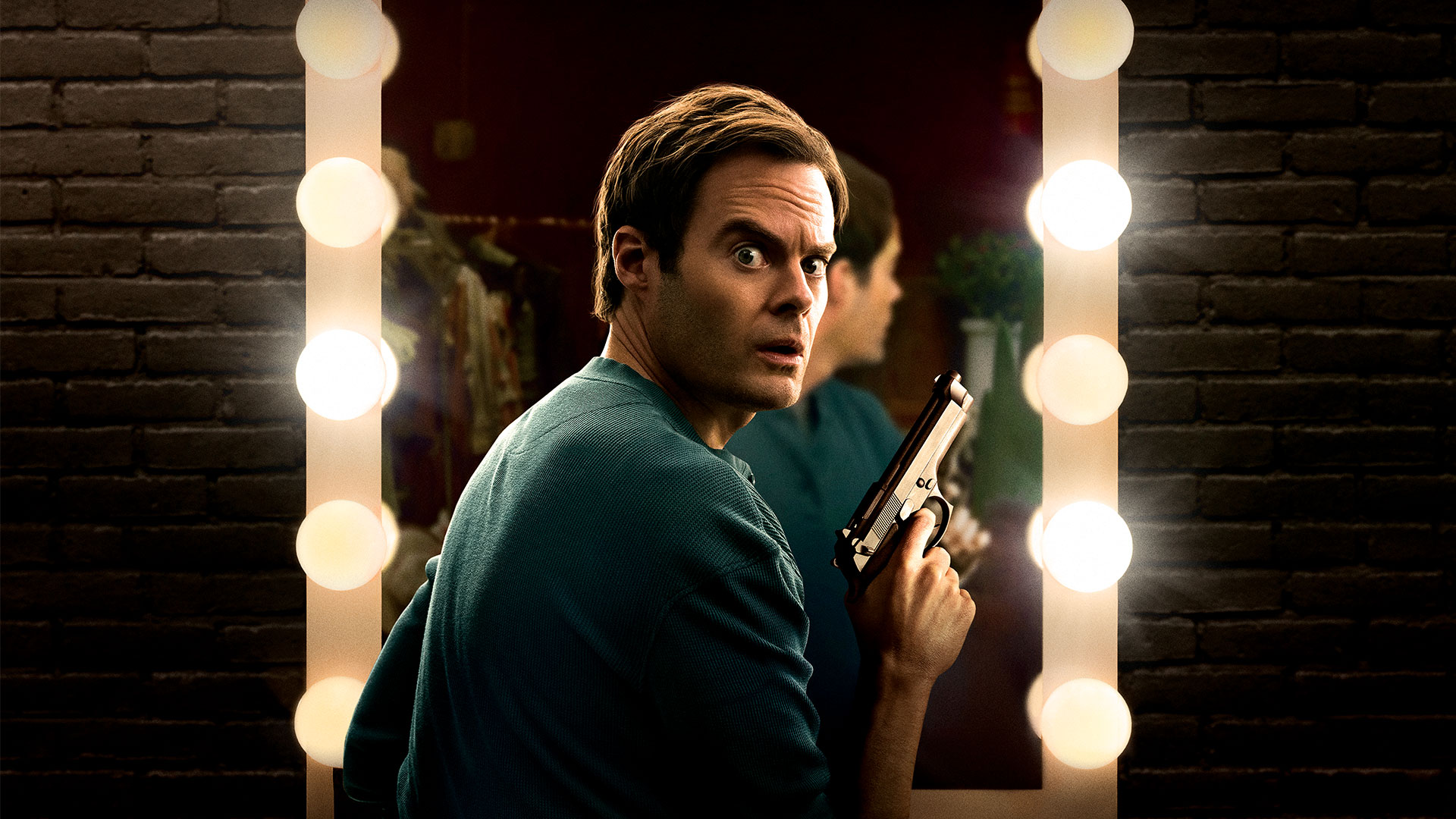
c/o HBO.com
When “Barry” finished its first season last year, it ended as one of the best new shows on television. Even with the talent behind it, including Bill Hader (as the lead actor, a writer, showrunner, and other behind-the-scenes roles), Alec Berg (a co-showrunner with Hader, best known for “Silicon Valley”) and even Henry Winkler (better known as The Fonz), the show’s premise seemed like a better fit for a Hader-led “SNL” sketch than a fully-fledged HBO production. The series follows a hitman (the titular character, as played by Hader) in his attempts to leave his murderous job behind him and become an actor. In the wrong hands, the show would’ve been a single joke repeated ad nauseam, the silliness of a hitman trying to become a performer being the only punchline.
Fortunately, the first season of “Barry” was much more than that. It was a show that balanced darkness with goofiness, featuring psychologically complex characters grappling with profound themes. Hader and his writers created the next great TV anti-hero, an evolution of characters ranging from Tony Soprano to Don Draper and Walter White. Barry is a deeply violent man, but in his desire to leave his murderous endeavors behind and start a better life, it’s impossible not to root for him.
The Season 1 finale seemingly closed the door on any possibility of Barry achieving the life he wanted. For a brief moment, Barry seems to have everything he wanted: Freed from his commitments to the Chechen mafia, and having started a relationship with his crush Sally (Sarah Goldberg), everything seems to be looking up. All of that is ruined when Detective Janice Moss (an excellent Paula Newsome) puts the pieces of the puzzle together and realizes that Barry was the killer she spent the entire season looking for. Upon confronting Barry, he responds to her in the only way he knows how: Firing off a few rounds from a pistol he hid nearby.
Season 2 picks up in the aftermath of this disaster, some months later. Barry is still clinging to his dreams of being an actor and escaping his past, but the dream life he’s established for himself is falling to pieces. His former ally, the Chechen mobster NoHo Hank (Anthony Carrigan), has resurfaced and demands Barry’s assistance. Barry’s acting coach Gene Cousineau (Winkler) is in a state of deep depression, as he was in a budding romantic relationship with Janice and has consequently lost all motivation to teach his acting course. In a desperate attempt to hold onto what little he has left, Barry convinces Gene to continue teaching. The catch: Each of his acting students must write and perform a monologue based on a traumatic memory. For Barry, that means re-visiting his time as a Marine, a would he would rather leave unexamined.
Perhaps the most strikingly impressive aspect of the show is how it balances profound darkness and goofy humor. For example, NoHo Hank is an impeccably silly character, from his cheery attitude and love of musical theater, to his fantasies of intellectually besting Thomas Friedman. NoHo Hank is ridiculously silly. But when he shows up outside Barry’s acting class, he is no longer a joke. The threat NoHo Hank poses to the life Barry has created for himself, and to the lives of his fellow actors, is very real. NoHo Hank then manages to simultaneously be comedic relief and a serious antagonist, a balancing act few other shows could pull off. There are countless other examples of silliness balanced with seriousness in the show. The most recent episode features Sally’s tense confrontation with her abusive ex-husband, and an actor struggling to convince Gene that he was abducted by aliens. It’s nothing short of miraculous that those two scenes can naturally co-exist within the same show.
Part of that is due to the outstanding cast. Hader has found a career-defining role with Barry. His performance is often understated, expressing incredible pain and anxiety with a simple glance or shudder. When Barry does break down, Hader is similarly outstanding. His anger and anxiety are painfully real. The supporting cast similarly shines. Like Hader, Goldberg must similarly portray an emotionally damaged character. Her depiction of Sally demonstrates the actress’ impressive range, from grappling with her character’s traumatic past, to her egocentric tendencies. As Gene, Winkler shines in portraying a deeply selfish, cynical man. Winkler does not let Gene’s self-centered inclinations entirely define the character; in his hands, Gene is a man with deep-seeded suffering, in addition to being a jerk. Carrigan’s performance similarly adds nuance to NoHo Hank, a character who would be a one-note joke in the hands of a lesser performer. Instead, he’s a multi-layered and hysterical character.
The same could really be said of “Barry” as a whole. Its premise seems like that of a much simpler show. Instead, the show is a surprisingly deep and thoughtful character study, an exploration of how the past affects the present. Traumas loom large over the characters of “Barry,” and everyone’s looking to outrun them. The tension between the character’s desire to overcome the burden of their past selves and the show’s refusal to reward these aspirations is the source of some powerful storytelling.
Whether or not “Barry” eventually rewards its characters’ hopes, or continues to deny them, is beside the point. The end of this season could very well repeat the same thematic point it made at the end of last season, with Barry and his friends again denied the chance to escape their pasts. It doesn’t matter whether or not the show continues its cynicism or has an optimistic streak. What matters is that, regardless of endgame, “Barry” is one of the most powerful, and funny, shows currently on television.
Henry Spiro can be reached at hspiro@wesleyan.edu and on Twitter @JudgeyMcJudge1.